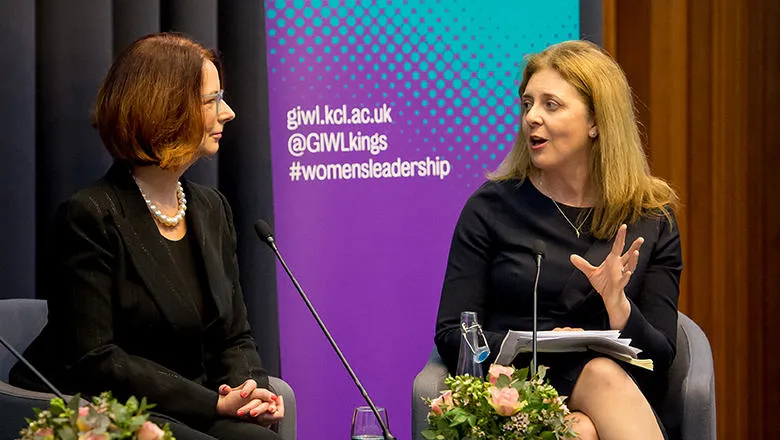27 April 2018
The legal profession needs to level the playing field for women
Joanna Ludlam, Equity Partner, Baker McKenzie
Law firms were built by men, for men – they are not fit for purpose in a gender-equal world

I am an equity partner in a global law firm, Baker McKenzie, and like many women, have had to balance my work goals with having a family. Earlier on in my career, I worked three days a week, then three and a half days (in an effort to get some financial compensation for the fact that I was squeezing more than three days’ work into my week). For the past five years I have worked full time, out of choice, as my children got older. They are now teenagers.
Baker McKenzie, like all law firms, has some way to go before achieving anything remotely close to gender equality. That said, the firm is very committed to making material change in this area. For a number of years we have had ‘global aspirational targets’ to achieve at least 30% female representation among our partners and leaders. We have introduced a number of initiatives designed to increase the number of women in senior positions, including:
- maternity coaching for maternity leavers and returners
- an agile working policy; mentoring programmes for women
- regular reviews of evaluation and promotion data to ensure an absence of unconscious bias in decision-making
- gender-equal shortlists for lateral partner hires
- an active BakerWomen internal forum and a commitment to the HeForShe movement
- a gender-equal management committee
- a Diversity & Inclusion partner who does not fee-earn but instead is wholly dedicated to D&I.
We also regularly look at our data and numbers and have done some analysis of the point at which we tend to lose women from the business. One of our current work streams is to address this ‘cliff’ and institute measures to try and prevent this.
Despite all of this, the number of women in senior positions in our firm has barely changed since I became a partner in 2009. Why? I think there are two reasons: the first is that law firms were built by men, for men, and the business model is simply not fit for purpose in a gender-equal world. There is still a culture of long hours, and of presenteeism: there is a strong belief that transactional lawyers cannot work part time, and remotely, because the demands of a time-critical business deal require that lawyers are in the office, working around the clock, to draft the agreements and get the deal done. I would like to challenge that assumption. If a deal is well-planned, why is it not possible for a working mother, for example, to take a couple of hours out of the day to collect her child from nursery and put them to bed, logging on later if necessary to continue working on the transaction? The teams on these deals are enormous and would arguably be more efficient if the lawyers were able to take breaks from the cut and thrust of the deal room.
The second blocker to progress is mindset. Unfortunately, there remains significant unconscious bias against women in business. For example, a woman who is ambitious and purposeful is often considered to be ‘aggressive’ and ‘difficult to work for’, whereas the equivalent man might be described as ‘successful’, ‘focused’, and ‘effective’. Criteria for making people up to partner still disadvantage women over men. I firmly believe that until the business model of the billable hour changes, it will be very difficult for women in law to be on an equal footing with their male counterparts, since the bottom line is that the main measure of success is the number of hours lawyers spend. I personally struggle with this measure: it bears no relation to the quality of the output and it encourages inefficiency. Yet law firms are really struggling to move away from this way of charging for our services and measuring the performance of our people.
One of the things Baker McKenzie is doing to ‘shift the mindset’ is to highlight our clients’ needs and preferences around gender diversity. Some years ago we realised that almost 40% of our client key decision makers were female. We began a series of BakerWomen client events, aimed primarily at women and designed around topics which would be of interest to them, and these events provided a safe and welcoming networking opportunity for our female client contacts. They are exceptionally successful and have demonstrated to our partners and to management how important the issue of gender equality is for our clients. This pressure from our client base is very powerful in terms of driving change.
I am thrilled to be involved in the Global Institute for Women's Leadership and excited at the opportunity it presents to bring about real and tangible organisational change.
